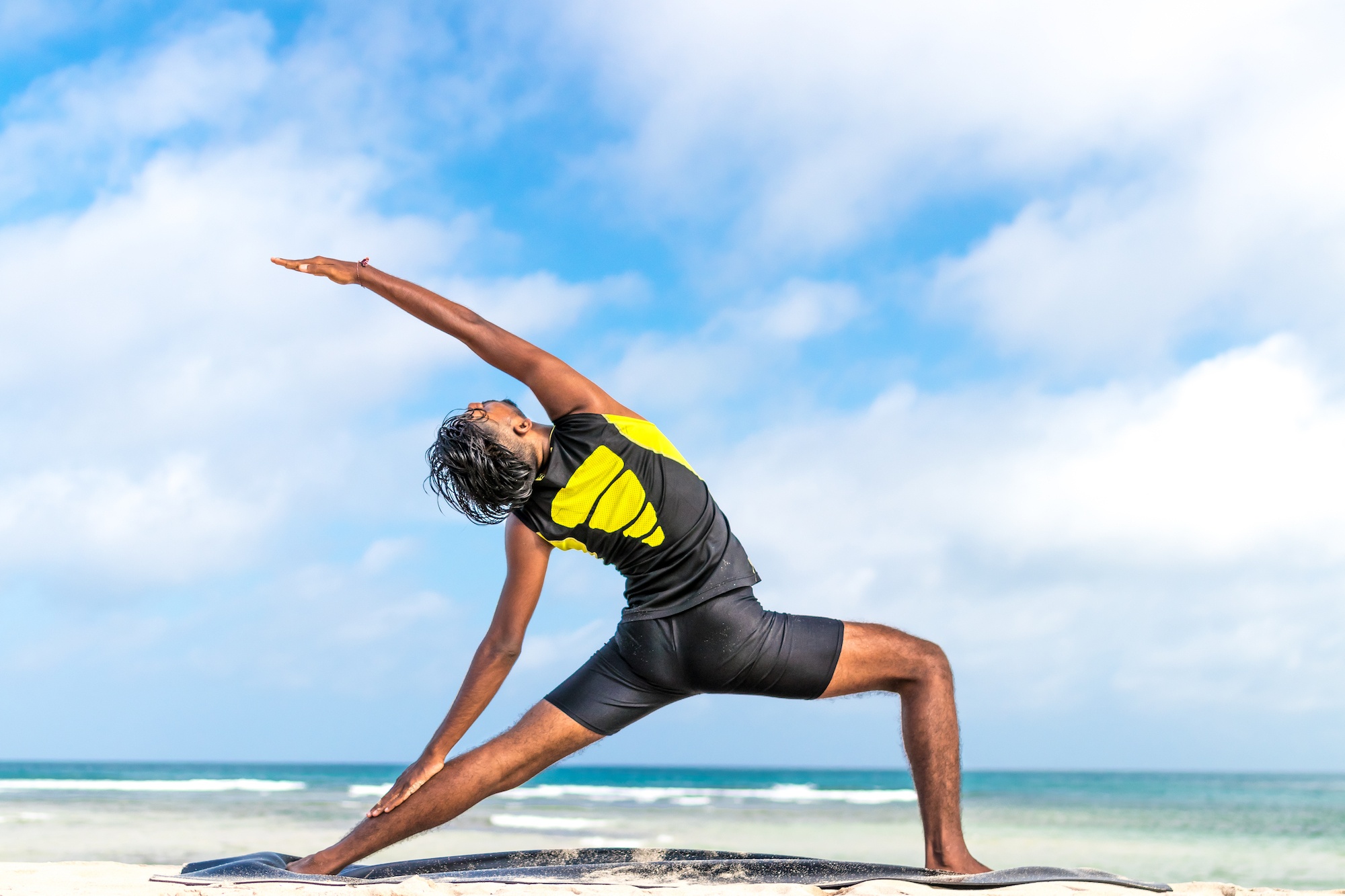In an effort to invite more consistency and discipline into my routine, I’ve recently developed a morning ritual to propel me into the day. Now I’ll be the first to admit, I’ve never been one to consistently follow rituals or routines. I tend to start out strong—swearing to myself that I’ll stick to it no matter what—only to flake off when things start to feel redundant. But this time, I’m approaching things a little differently, guided by the wisdom of something I learned from one of my meditation teachers several years ago.
When I first attempted meditation, I was a self-proclaimed “stress ball.” It was hard for me to sit still for even a few minutes, and my mind felt like it was always racing a mile a minute. No matter how much I tried to slow down or calm down, it never seemed possible. Yoga, which I had been practicing for many years by the time I found my way to sitting meditation, was the closest I could get to stillness—and even that felt like a fairly excruciating challenge. During my initial conversations with the meditation teacher I mentioned, we’d talk about the fundamentals of meditation and address my curiosities and reservations. I explained to him that as much as I wanted to develop a practice of meditation, I just wasn’t the Zen type. “My mind is too busy,” I told him. “Plus, I’m prone to anxiety, so it’s really hard for me to slow down my thoughts and just breathe in the moment.” Part of me wanted him to teach me how to overcome these apparent obstacles; but if I’m being honest, the bigger part of me hoped he’d buy my excuses and exempt me from the difficult practice altogether. He did neither of these. All he did was flash his playful, patient smile and insist, in one way or another, that I keep coming back to my cushion each day. “Just keep sitting,” he’d say. “And remember, the practice is the purpose.”
These words confounded me every time I heard them. They struck me like some sort of complex riddle that I couldn’t quite solve. At once simple and profound, the phrase was clearly supposed to be encouraging; but at that time in my life, all it did was make my head spin. Nonetheless, I heeded his advice and kept returning to my cushion every day, eager to get to the other side of my struggle and reach some sort of clearing, where my mind would become silent, and enlightenment would be mine.
When I look back at these times and remember the thinking that guided me through them, I can’t help but smile. I had no idea what my teacher was talking about, but boy, is it clear to me now. You see, it’s been years since I started meditating, and I can tell you without the slightest bit of hesitation that I’m nowhere near enlightenment. And there hasn’t been a single meditation session that’s led me to a completely silent mind. But I can also tell you that meditation has profoundly and radically transformed my life. No matter what I feel, how resistant I might be, or how much my sessions challenge me, I return to my cushion—over, and over, and over again. And each time I do, I learn and I grow. Each time I do, I realize how right my teacher was: the purpose has always been the practice.
Neuroscience research supports that we can change our brains—and, thus, change our lives—through committed and consistent practice. But we don’t need science to tell us that; it’s evident everywhere we look. How do professional athletes get so good at their game? Practice. How do long-term, successful couples quickly resolve issues in their relationship and reestablish harmony? Practice. How does anyone who’s exceptional at anything get to that point? Yep, you guessed it: they practice, with purpose, repeatedly and consistently. They keep coming back, no matter how difficult or mundane the task may be. And it’s important for us to remember that we all have that capacity. Over time, our brains and bodies reward our practice, yielding positive results that, if we let them, can reinforce our efforts.
Now that I understand what it means for the practice to be the purpose, I challenge people not to count themselves out of meditation because their minds are too busy. And I talk back to my own narratives about not being consistent enough to stick to a morning ritual. There’s beauty in devotion and discipline. Even when it seems like nothing is happening, practice works some pretty brilliant magic—the kind that can change our lives and evolve us into the best versions of ourselves.
So, what practice can you commit to? And who might you become through your purposeful dedication to it?

